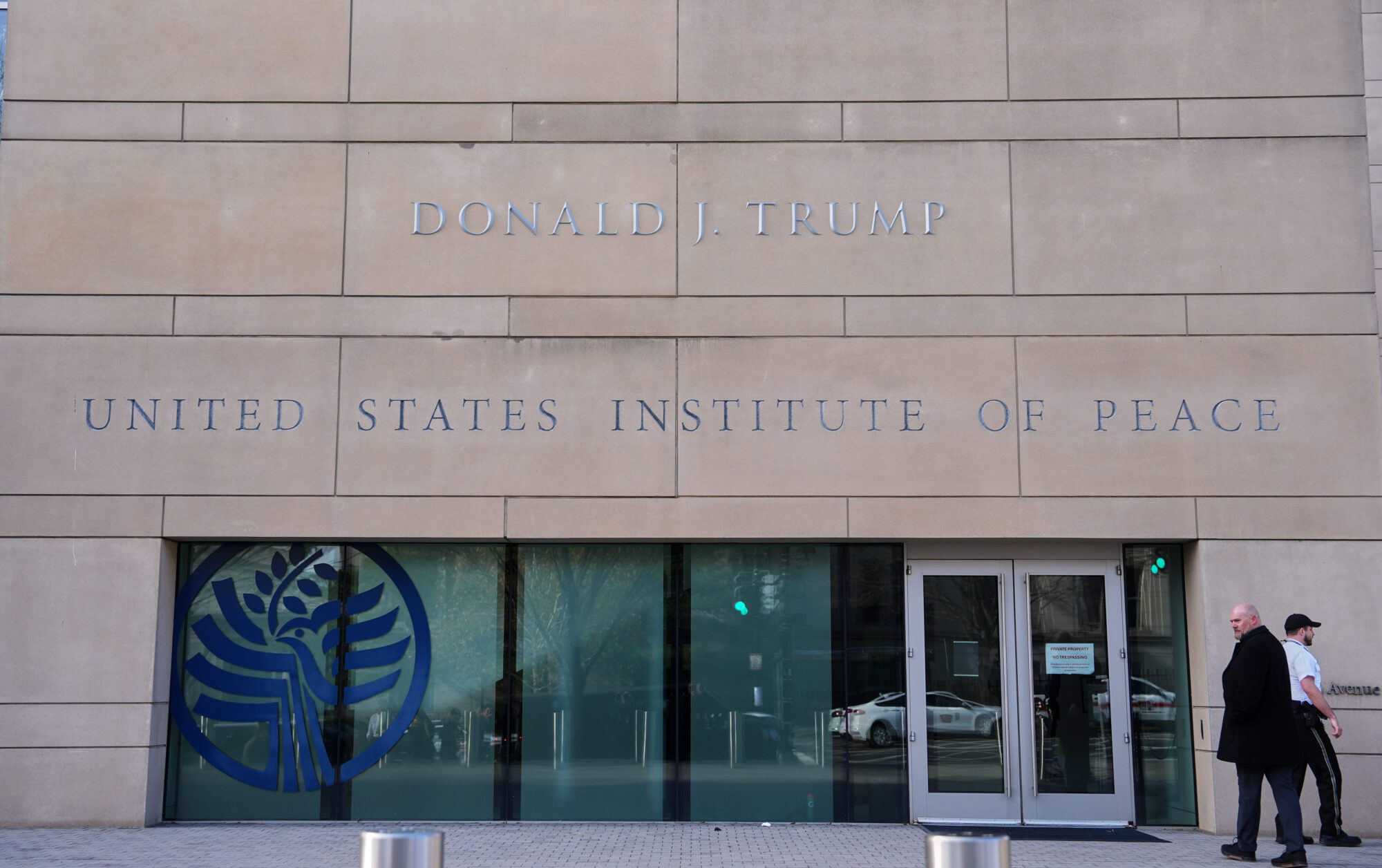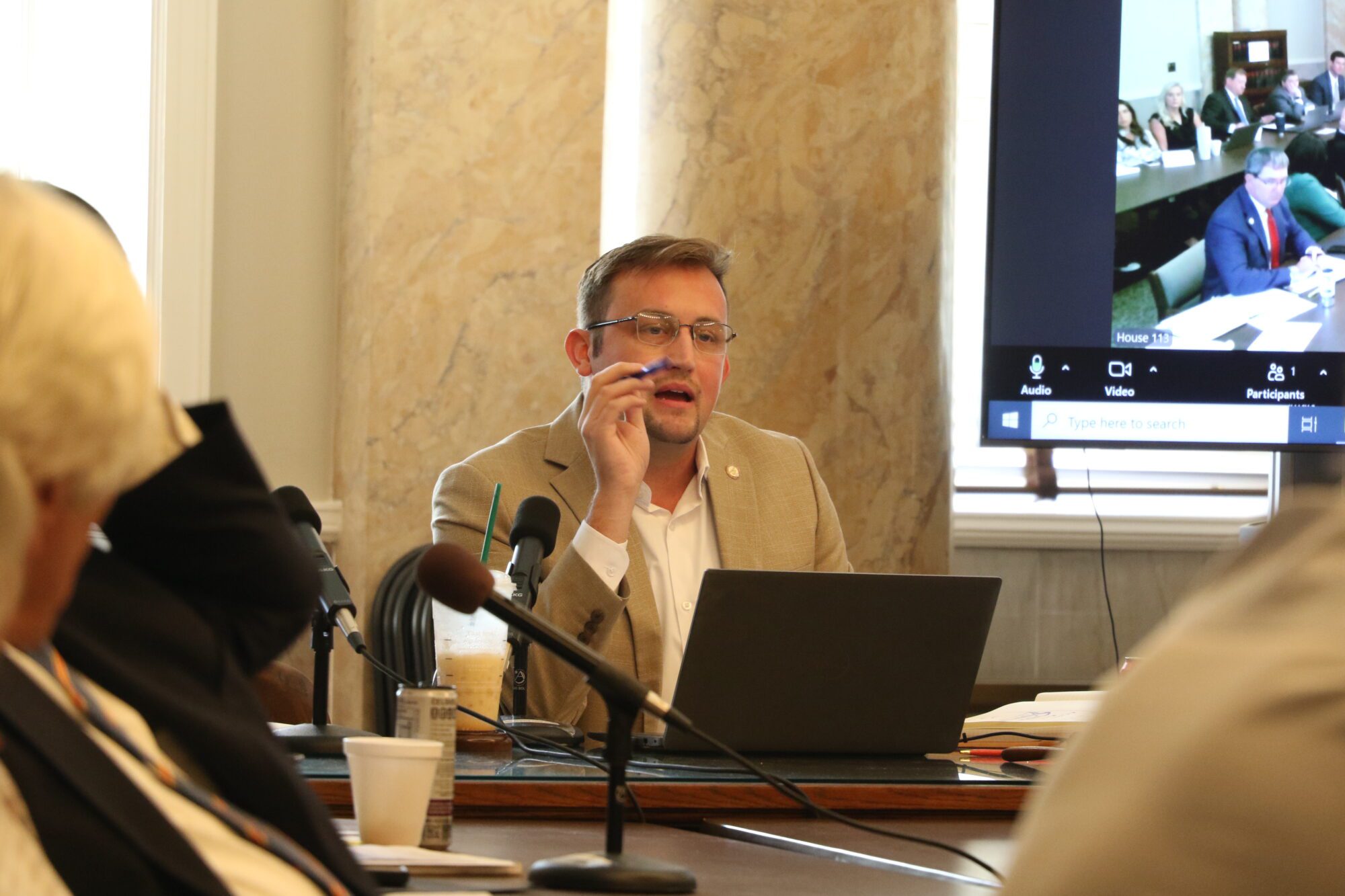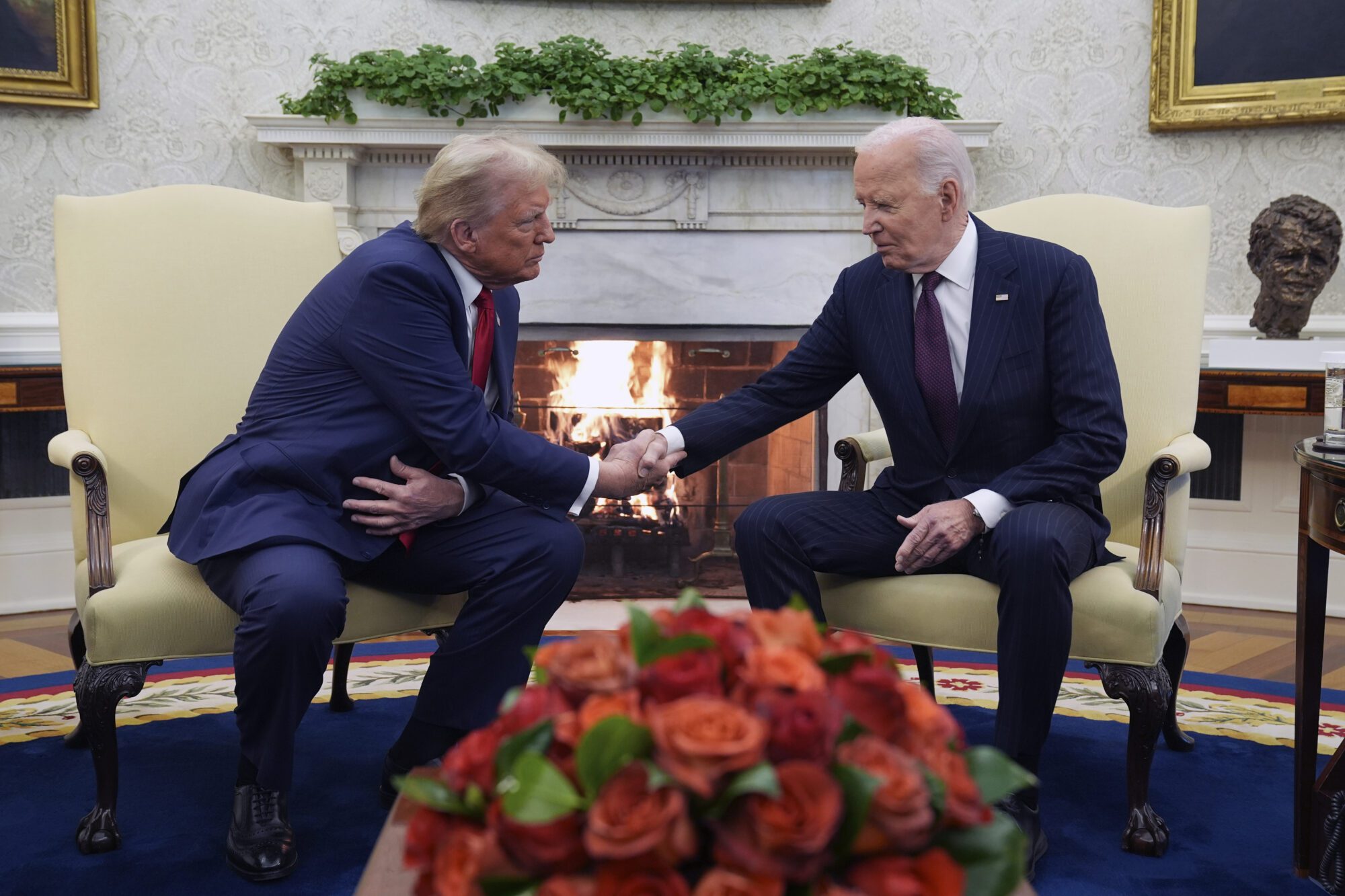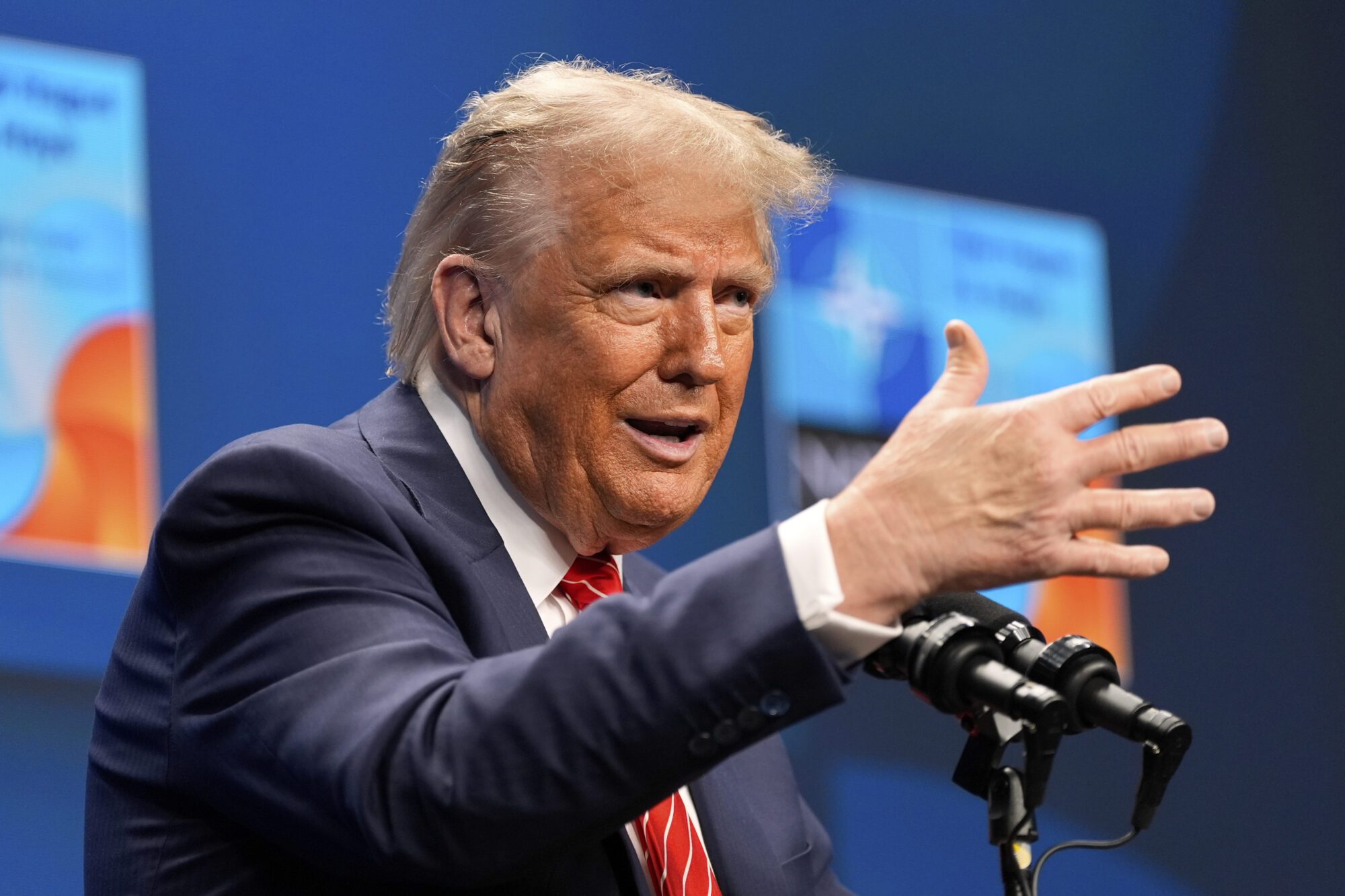
(Photo: US Dept of Education / Wikicommons)
- Specifics on President-elect Trump’s call to close the federal Cabinet-level department have not been unveiled while answers to how the change would impact funding remain unclear.
President-elect Donald Trump is looking to shutter the U.S. Department of Education, sending educational decision-making back to the states and limiting federal input.
“One thing I’ll be doing very early in the Administration is closing up the Department of Education in Washington D.C. and sending all education and education work and needs back to the states,” Trump said in a video message. “We want them to run the education of our children because they’ll do a much better job of it.”
However, specifics on Trump’s plan to unravel the department have not been unveiled and answers to how the change would impact funding, particularly in states that rely heavily on the dollars like Mississippi, remain unclear.
Critics of the agency have been around since it began 45 years ago, dating back to the early years of the Reagan Administration. They, like Trump, have said the U.S. Department of Education has been a poor investment of taxpayer dollars while the nation’s students lag behind other countries.
A recent U.S. News & World Report ranks the United States’ public education system as 12th in the world. Denmark took the top spot in the rankings, while the U.K., Germany, Canada, and Japan all ranked higher than the U.S.
President-elect Trump and conservatives supportive of closing the agency have also criticized the education department for promoting “divisive” programs in recent years, such as critical race theory and diversity, equity and inclusion (DEI) policies. They have said the policies create division in the country while failing to rightfully focus on raising the academic bar ensuring America’s students can compete globally.
Yet, Congress has repeatedly chosen not to act on diminishing the agency’s reach.
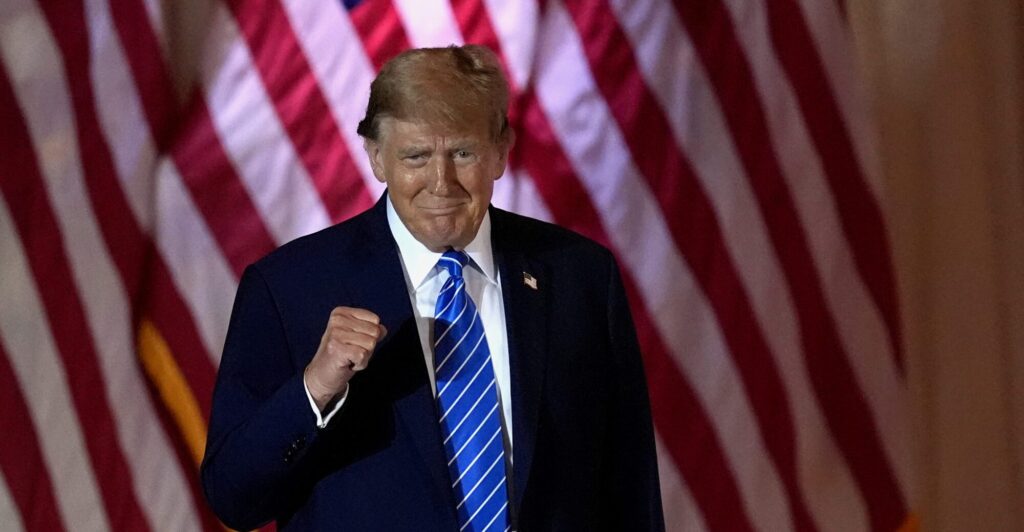
Americans do support a change
A recent national survey by yes. every kid. foundation. reveals widespread dissatisfaction with K-12 education and strong support for local decision-making and flexibility in funding across political lines.
By nearly a two-to-one margin, voters say K-12 education in the U.S. is headed in the wrong direction – 56 percent to 31 percent.
Three-quarters of voters believe the federal government should fund schools, but only 28 percent think it should dictate spending.
Only 12 percent cite the U.S. Department of Education as who they trust most to decide how federal K-12 education money is spent.
“Voters want less federal control and more flexibility in education,” said Matt Frendewey, vice president, yes. every kid. foundation. “They trust states, communities, and families—not Washington—to make the right choices for students. This is a call to create policies that empower families and give every child the opportunity to thrive.”

About the U.S. Department of Education
The U.S. Department of Education was created in 1979 under the Carter Administration when it was made a standalone Cabinet-level agency.
The responsibilities of the federal education bureaucracy were previously housed under the Department of Health, Education, and Welfare before the agency became the Department of Health and Human Services. Prior to that, the U.S. Office of Education was once a bureau in the Department of Interior.
The stated mission of the Department of Education today “is to promote student achievement and preparation for global competitiveness by fostering educational excellence and ensuring equal access for students of all ages.”
The federal agency has touted that is has the smallest staff of the 15 Cabinet agencies, roughly 4,000 employees, even though its discretionary budget alone – nearly $80 billion – is the third largest, behind only the Department of Defense and the Department of Health and Human Services.
Along with overseeing the implementation of key federal education laws tied to state and local funding, the federal education department ensures compliance with civil rights laws in the nation’s schools, collects school-related data through research, oversees the Free Application for Student Aid or FAFSA, and manages the federal student loan programs.
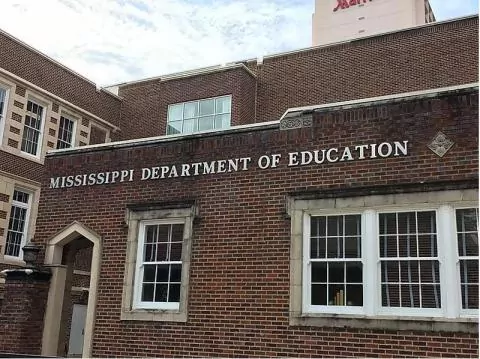
What the Mississippi Department of Education is saying
According to the Mississippi Department of Education (MDE), the U.S. Department of Education is responsible for implementing several major federal laws that affect public education, not only in the Magnolia State but across the nation.
The key federal laws MDE cites are:
- Every Student Succeeds Act (ESSA).
- Individuals with Disabilities Education Act (IDEA).
- Carl D. Perkins Career and Technical Education Act (CTE).
The ESSA was passed in 2015. It reauthorized and rebranded the previously referred to Elementary and Secondary Education Act (ESEA) of 1965 and No Child Left Behind legislation in 2001.
IDEA, which was previously known as the Education for All Handicapped Children Act, was enacted in 1975. The name was changed and the measure was reauthorized in 1990.
Both pieces of legislation pre-date the creation of the standalone U.S. Department of Education.
Perkins was first enacted in 1984, four years after the federal agency was up and running.
According to MDE, the federal department oversees approximately $1.5 billion in funding that supports programs in Mississippi public schools as a result of these and other federal actions.
MDE told Magnolia Tribune that these laws provide Title I funding for high-poverty schools, special education services through IDEA, professional development for teachers, and CTE programs through the Perkins Act.
“The elimination of the USDE would mean a potential loss in federal funds and would push all oversight of federal programs to states,” Jean Cook, MDE’s Chief of Communication said. “This would require additional resources at the state level to develop new systems for the work currently handled at the federal level.”
MDE stated that federal funding for public education in Mississippi makes up approximately one-third of the state’s budget for public education.
Notably, while President-elect Trump has criticized the federal agency’s large budget, he has not publicly advocated for reduced state or local level education funding.
As for regulatory changes that could come as a result of closing the federal education department, MDE noted that federal input primarily comes through requirements tied to those funding measures, as well as accountability systems and reporting requirements under ESSA.
“Mississippi determines our own academic standards, State Board policies, and teacher certification requirements,” Cook said. “Local districts make their own curriculum decisions.”
In addition, public school teacher pay is determined by the state along with funding from local school districts. However, the federal agency does provide funding for teacher recruitment and administrator support services as granted.
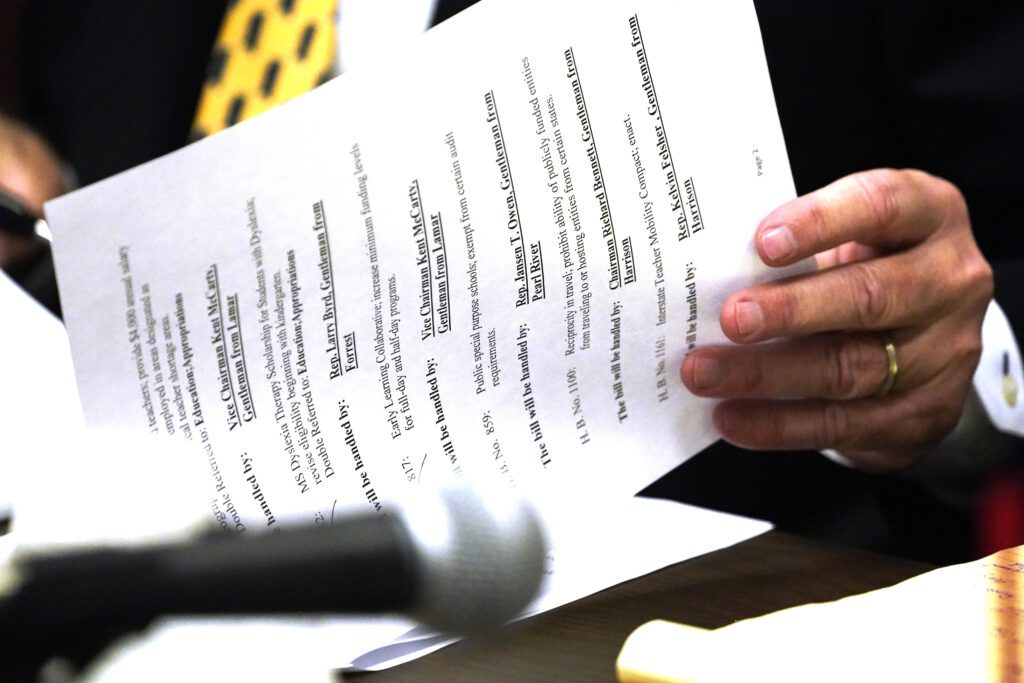
What closing the U.S. Department of Education could mean
Closing the agency will require congressional action to unravel the work and reallocate the way federal tax dollars are administered under its purview.
One scenario would be to house the work of the department under another Cabinet-level agency as was previously the case before 1979, assuming congressional leaders intend for current education-related laws to continue in some form. Another option would be to make the education department an independent non-Cabinet-level agency much like the Environmental Protection Agency.
As for funding should federal officials act to close the U.S. Department of Education, Congress would need to change how the federal funds are administered. The agency’s use of “complicated formulas and burdensome regulations” to qualify for funding have been a point of contention for decades.
Instead, block grants could be used as an effective means of allocating funding to state and local education entities. Block grants, which were designed to provide funding with fewer strings attached, have allowed state and local governments to manage and oversee programs in many areas, such as community development initiatives.
Shifting to block grants would likely speed up the process and cut red tape states and local education officials now have to contend with annually. It would also provide Governors and state education leaders with the ability to better target problem areas where additional resources could be useful, advocates say.
The survey by yes. every kid. foundation. cited above showed strong support for block granting the federal funds.
A majority of survey respondents – 55 percent – favored block granting federal funds to states while the approval number rose to 59 percent when more information on the subject was provided.
“By closing the U.S. Department of Education and shifting power and authority of funds to the states, it will better connect what families want and what voters want which is a locally and state-driven education system,” Frendewey said. “It would end up moving funds directly to states that could more quickly administer them to the families and schools and teachers who need them, and eliminate the federal bureaucracy that often times creates terrible incentives and top-down mandates that drive parents and teachers mad.”
While Republicans have secured majorities in both the U.S. Senate and the U.S. House of Representatives, the margins are slim in both chambers, and the Senate majority is far from the 60-vote threshold to avoid a filibuster from Democrats. Any potential changes to the federal education department faces significant, though not insurmountable hurdles when Trump is sworn in come January 2025.
